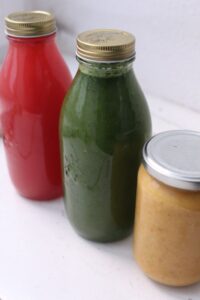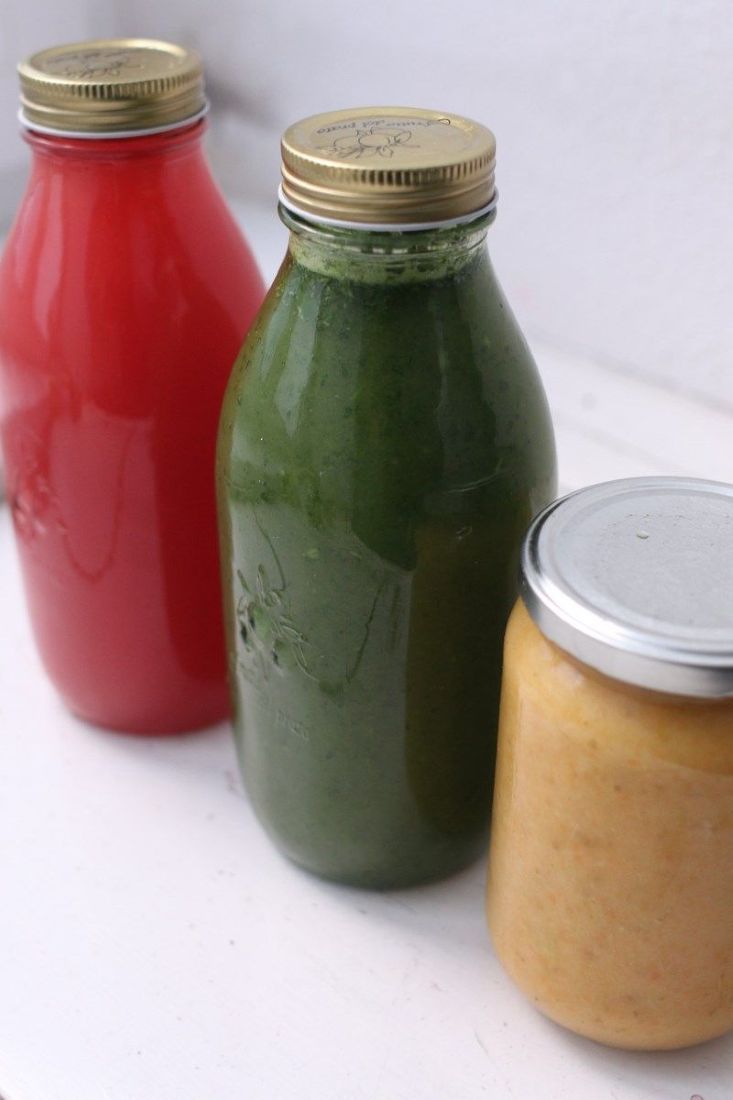Juice cleanses have become increasingly popular in recent years as a way to detox the body and jumpstart weight loss. But with so many conflicting opinions and information out there, it can be hard to separate fact from fiction when it comes to the truth about juice cleanses. Are they a safe and effective way to improve your health, or are they just another fad diet that has no real benefits? In this article, we will dive into the truth about juice cleanses, exploring their potential health benefits, the risks associated with them, and whether or not they are worth trying. So, if you’re curious about juice cleanses and want to know the truth behind the hype, keep reading!

The Claims of Juice Cleanses: What are the supposed benefits?
Juice cleanses are advertised as a way to detoxify the body, boost energy levels, and even clear up skin problems. Supporters of juice cleanses also claim that they can improve digestion, reduce inflammation, and help with weight loss. But what is the truth behind these claims?
Firstly, it is important to understand that the human body is designed to detoxify itself naturally. Our liver, kidneys, and other organs work together to remove toxins and waste products from our bodies. While a juice cleanse may provide some temporary relief, it does not necessarily provide any long-term benefits.
Secondly, while juice cleanses may help with weight loss in the short term, they are not a sustainable solution. When you go on a juice cleanse, you are essentially depriving your body of essential nutrients and calories. This can result in a slower metabolism, a loss of muscle mass, and a rebound weight gain when you return to your normal eating habits.
Lastly, while some people may experience improved digestion or clearer skin while on a juice cleanse, this is likely due to the fact that they are consuming more fruits and vegetables than they normally would. It is not necessarily the juice cleanse itself that is providing these benefits.
The Risks of Juice Cleanses: What are the potential dangers?
While juice cleanses may seem harmless, there are actually a number of potential risks associated with them. Firstly, as mentioned earlier, juice cleanses can deprive your body of essential nutrients and calories, which can lead to a slower metabolism and a loss of muscle mass.
Secondly, juice cleanses can be high in sugar. Even though the sugar in juice is natural, it can still lead to a spike in blood sugar levels and contribute to insulin resistance over time. This can increase your risk of developing type 2 diabetes.
Thirdly, juice cleanses can be low in protein. Protein is essential for building and repairing tissues in the body, and it is also important for maintaining a healthy immune system. When you go on a juice cleanse, you may not be consuming enough protein to support these functions.
Lastly, juice cleanses can be expensive. Many juice cleanse programs can cost hundreds of dollars, which may not be feasible for everyone.
The Science Behind Juice Cleanses: What do experts say?
There is little scientific evidence to support the claims of juice cleanses. While some studies have shown that certain fruits and vegetables may have health benefits, there is no evidence to suggest that consuming them in juice form is any more effective than consuming them whole.
Additionally, many experts believe that the body is already equipped to detoxify itself naturally. Dr. David Katz, a prominent nutrition expert, has stated that “there is no scientific evidence that juice cleanses do anything to help the body detoxify itself.”
The Truth About Detoxification: Can juice cleanses really cleanse your body?
As mentioned earlier, the human body is designed to detoxify itself naturally. While a juice cleanse may provide some temporary relief, it does not necessarily provide any long-term benefits.
Additionally, there is no evidence to suggest that juice cleanses are any more effective than simply eating a healthy diet. Consuming a diet rich in fruits, vegetables, lean protein, and whole grains is the best way to support your body’s natural detoxification processes.
The Importance of a Balanced Diet: Why a juice cleanse is not a sustainable solution
As mentioned earlier, juice cleanses are not a sustainable solution for weight loss or improved health. When you go on a juice cleanse, you are essentially depriving your body of essential nutrients and calories, which can lead to a slower metabolism and a loss of muscle mass.
Additionally, juice cleanses can be high in sugar and low in protein, which can have negative effects on your health over time. Consuming a balanced diet that is rich in nutrients and low in processed foods is the best way to support your overall health and well-being.
The Role of Marketing: How companies profit from juice cleanses
Juice cleanses have become a lucrative industry, with many companies selling expensive juice cleanse programs and products. While these companies may claim that their products are backed by science, the truth is that there is little evidence to support the claims of juice cleanses.
Additionally, many companies use misleading marketing tactics to sell their products. They may use buzzwords like “detox” and “cleanse” to make their products sound more appealing, even though there is no evidence to suggest that these products are any more effective than simply eating a healthy diet.
Alternatives to Juice Cleanses: How to achieve a healthy lifestyle
Rather than going on a juice cleanse, the best way to achieve a healthy lifestyle is to consume a balanced diet that is rich in nutrients and low in processed foods. This means eating plenty of fruits, vegetables, lean protein, and whole grains, and avoiding sugary drinks and processed snacks.
Additionally, it is important to stay hydrated by drinking plenty of water throughout the day, and to get regular exercise. These habits can help to support your body’s natural detoxification processes and improve your overall health and well-being.
Making Informed Decisions about Juice Cleanses.
In conclusion, while juice cleanses may seem like an appealing way to detoxify the body and jumpstart weight loss, there is little scientific evidence to support their claims. Additionally, there are a number of potential risks associated with juice cleanses, including a slower metabolism and a loss of muscle mass.
Rather than going on a juice cleanse, the best way to achieve a healthy lifestyle is to consume a balanced diet that is rich in nutrients and low in processed foods. By making informed decisions about your diet and lifestyle, you can support your body’s natural detoxification processes and improve your overall health and well-being.


